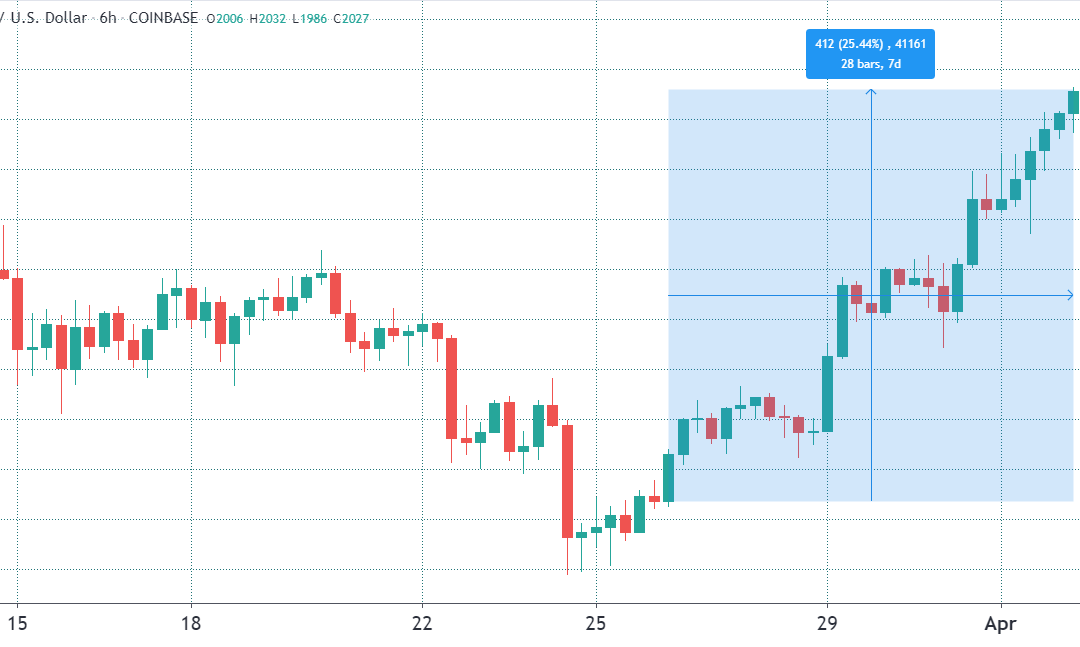Now that Ether’s (ETH) price broke the $2,000 level, hitting all-time highs this week, traders became excessively bullish and are expecting more upside in the short-term.
Some analysts believe Visa’s initial USD Coin (USDC) stablecoin transaction settlement on the Ethereum network kicked off the most recent rally. Others attribute the current Ether hike to a “triangle market structure” breakout.
Regardless of the cause behind the recent 25% rally, professional traders seem highly optimistic this time around. This conclusion can be reached by looking at the surging futures’ basis, which has reached its highest level ever.
This movement brings increased risks of cascading liquidations due to excessive buyer leverage, but professional traders seem confident, as shown by the delta skew indicator.
Investors could be anticipating the protocol improvement proposal EIP-1559 set to go live in July, which aims to fix the surging gas fees. The upgrade intends to use flexible block sizes instead of the current fixed model, and it aims for a network utilization below 50%.
To assess whether professional traders are leaning bullish, one should start by analyzing the futures premium (also known as the basis). This indicator measures the price gap between futures contract prices and the regular spot market.

The 3-month futures should usually trade with a 10% to 20% annualized premium, comparable to the stablecoin lending rate. By postponing settlement, sellers demand a higher price, causing the price difference.
The basis on Ether futures has matched its all-time high at 38%, indicating that it is costly for the leveraged longs. A basis level above 20% is not necessarily a pre-crash alert, but buyers’ overconfidence might pose a risk if the market recedes below $1,750.
It is worth noting that traders sometimes boost their leverage use during a rally but later purchase the underlying asset (Ether) to unwind the risk from futures.
Sometimes the fixed-month contracts’ high leverage is a consequence of perpetual futures aggressive buying by retail traders. Whales, arbitrage desks, and market makers avoid exposure on these contracts due to their variable funding rate.
Options markets are also leaning bullish
To correctly interpret how professional traders are balancing the risks of unexpected market moves, one should turn to the options market.
The 25% delta skew provides a reliable and instant “fear and greed” analysis. This indicator compares similar call (buy) and put (sell) options side by side and will turn negative when the neutral-to-bearish put options premium is higher than similar-risk call options. This situation is usually considered a “fear” scenario, although frequent after solid rallies.
On the other hand, a negative skew translates to a higher cost of upside protection and points toward bullishness.

For the first time since Feb. 5, the options skew indicator is leaning bullish, although it is not far from the negative 10% neutral threshold. Furthermore, the “fear and greed” indicator has continuously improved over the past five weeks.
Part of the reason behind the modest optimism lies in fear of a sharp correction after crossing the $2,000 psychological barrier, similar to the one seen on Feb. 19.
This time around, however, the derivatives markets are healthy, and professional traders appear to be building up positions as Ether marks a new all-time high.
The views and opinions expressed here are solely those of the author and do not necessarily reflect the views of Cointelegraph. Every investment and trading move involves risk. You should conduct your own research when making a decision.










